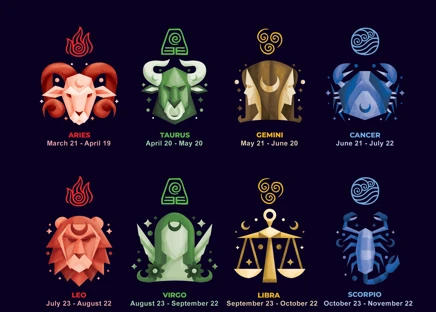The world has always been fascinated by the mysteries of the universe, and one aspect that has captured our imaginations through the ages is the study of zodiac signs. These ancient symbols, passed down through civilizations, hold hidden meanings and insights into our personalities and destinies. From the mesmerizing zodiac of Mesopotamia, with its connection to astrology, to the symbolic significance of the Egyptian zodiac in their religious practices, and the influence of the Greek and Roman zodiac on their societies and mythology, each culture has added its unique interpretation to the celestial tapestry. The Chinese zodiac, with its twelve animal signs, holds a prominent place in Chinese society, while the mesoamerican zodiac played a vital role in Mayan, Aztec, and Inca cultures. Join us on a journey as we explore the significance and rich history of zodiac signs in ancient cultures.
Ancient Mesopotamia
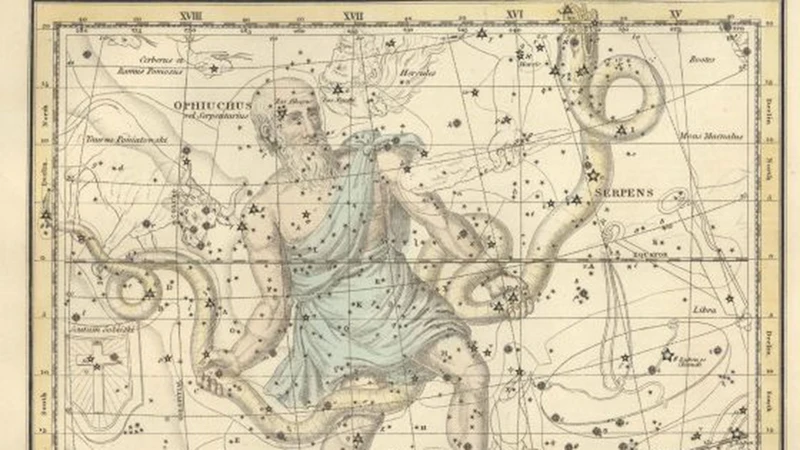
In ancient Mesopotamia, the study of astrology and the zodiac held great significance. Millennia ago, the Mesopotamians developed the concept of astrology, a belief in the influence of celestial bodies on human affairs. As they observed the movements of the stars and planets, they began to associate certain cosmic alignments with different aspects of life. The zodiac played a central role in their civilization, serving as a framework for understanding and predicting events. Mesopotamian Astrologers divided the sky into twelve equal sections, each representing a different constellation, and these divisions formed the basis of the zodiac we know today. The ancient Mesopotamians believed that the positions of these constellations at the time of a person’s birth could reveal their character traits and potential future. The influence of Mesopotamian astrology and the zodiac spread to neighboring civilizations and shaped the practice as we understand it today. (Link: /evolution-zodiac-sign-symbols-history/)
1. Development of Astrology
The development of astrology in ancient Mesopotamia was a groundbreaking step that would lay the foundation for future astrological practices. The Mesopotamians, particularly the Babylonians, were keen observers of the celestial bodies and their movements. They believed that the positions and alignments of the stars and planets had a profound influence on the events occurring on Earth. Over time, these observations led to the development of a complex system of astrology, where celestial events were correlated with earthly outcomes. Astrologers meticulously recorded celestial phenomena, such as the movements of the sun, moon, and planets, as well as comets and eclipses, seeking patterns and correlations with human activities and natural disasters. The development of astrology in Mesopotamia was not limited to predicting future events, but it also played a role in decision-making, such as determining the most auspicious time for various endeavors like agricultural activities or embarking on military campaigns. This early form of astrology laid the groundwork for the zodiac system, which later spread to other civilizations and became an integral part of their cultures. Understanding the development of astrology in Mesopotamia provides valuable insights into the origins and evolution of astrological practices that continue to influence our lives today. (Link: /mysterious-origins-of-ophiuchus/)
2. Zodiac in Mesopotamian Civilization
The zodiac held immense significance in Mesopotamian civilization, acting as a guiding framework for understanding celestial movements and their influence on human life. The Mesopotamians divided the night sky into twelve sections, each associated with a different constellation. These twelve constellations formed the basis of the zodiac. Known as the “celestial road,” the zodiac acted as a celestial map, allowing astrologers to track the movement of stars and planets across the sky.
In Mesopotamia, the zodiac played a vital role in astrology. It was believed that the positions of the planets and stars at the time of a person’s birth influenced their personality traits, destiny, and even their interactions with others. The Mesopotamians saw a direct connection between celestial events and the earthly realm. They believed that careful observation of the zodiac could provide insight into a person’s future, allowing them to make important decisions or anticipate potential challenges.
Interestingly, the Mesopotamian zodiac also served practical purposes, such as determining the best times for planting and harvesting crops. Ancient Mesopotamian farmers understood the cyclical nature of the seasons and relied on the zodiac to guide their agricultural activities. By aligning their actions with the zodiac, they believed they could harness the favorable celestial energies for a prosperous harvest.
The influence of the Mesopotamian zodiac on astrology and astrological practices cannot be overstated. It laid the foundation for the development of astrological traditions that would be passed down through the ages and have a lasting impact on cultures around the world. To this day, the connection between the zodiac and astrological practices endures, captivating individuals seeking self-awareness and a deeper understanding of their place in the universe. (Link: /history-influence-zodiac-signs-astrological-practices/)
Ancient Egypt
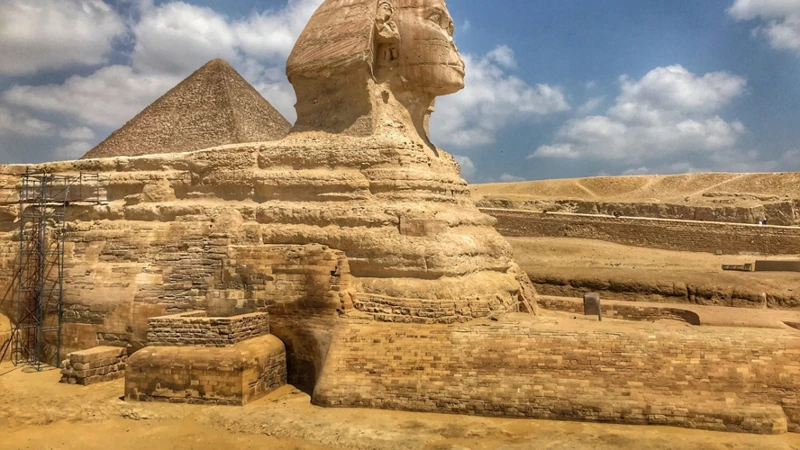
In the ancient civilization of Egypt, the zodiac held a deep connection to their rich religious practices. The Egyptians revered the stars and the celestial bodies as divine entities, believing that they held immense power and influence over human lives. The zodiac became an integral part of their religious rituals and beliefs, with each constellation representing a specific deity or aspect of their mythology. The alignment of the stars was closely observed and interpreted, guiding the Egyptians in various aspects of their lives. Additionally, the Egyptians incorporated the zodiac into their calendar system, using it to determine the most auspicious times for religious ceremonies, agricultural activities, and even warfare. The Egyptian zodiac, with its unique blend of spirituality and practicality, reveals the deep reverence and profound connection that the ancient Egyptians had with the celestial realm.
1. Connection between Zodiac and Egyptian Religion
The connection between the zodiac and Egyptian religion in ancient Egypt was deep-rooted and intricate. The Egyptian civilization revered the celestial bodies and believed in their direct influence on human lives and the afterlife. The zodiac had a significant role to play in both religious rituals and mythological beliefs. The Egyptians associated each zodiac sign with a specific deity, attributing divine qualities and characteristics to individuals born under each sign. For example, Aries was linked to the god Amun-Ra, representing leadership and power, while Taurus was associated with the goddess Hathor, symbolizing fertility and abundance. These divine connections influenced the way Egyptians perceived themselves and their destinies. The zodiac signs also played a crucial role in the Egyptian concept of the afterlife, where they were believed to guide the deceased souls on their journey. The alignment of the sun with different zodiac signs throughout the year was of utmost importance in religious festivals and ceremonies. The Egyptians believed that the position of the sun at the time of one’s birth had a profound impact on their spiritual path and destiny. The intricate connection between the zodiac and Egyptian religion highlights the profound influence of celestial bodies on the religious and spiritual beliefs of this ancient civilization.
2. Use of Zodiac in Egyptian Calendar
The use of the zodiac in the Egyptian calendar played a vital role in the ancient Egyptian civilization. The Egyptians, known for their deep connection with the celestial bodies, incorporated the zodiac into their calendar system for agricultural and religious purposes. The Egyptian calendar, which consisted of 12 months, corresponded with the 12 zodiac signs. Each month was associated with a specific deity and had its own agricultural tasks tied to the cycles of the Nile River. The alignment of the zodiac during different months influenced the timing of important agricultural activities such as planting and harvesting. Additionally, the Egyptians believed that the zodiac signs had a profound impact on an individual’s personality and destiny. They associated each zodiac sign with specific characteristics and used this knowledge for divination and understanding one’s place in the cosmos. The zodiac was also intertwined with Egyptian mythology, with each sign representing a different god or goddess. The use of the zodiac in the Egyptian calendar reflects the ancient Egyptians’ intricate understanding of the celestial world and their endeavor to align their lives with the cosmic forces. (Link: /mysterious-origins-of-ophiuchus/)
Ancient Greece and Rome
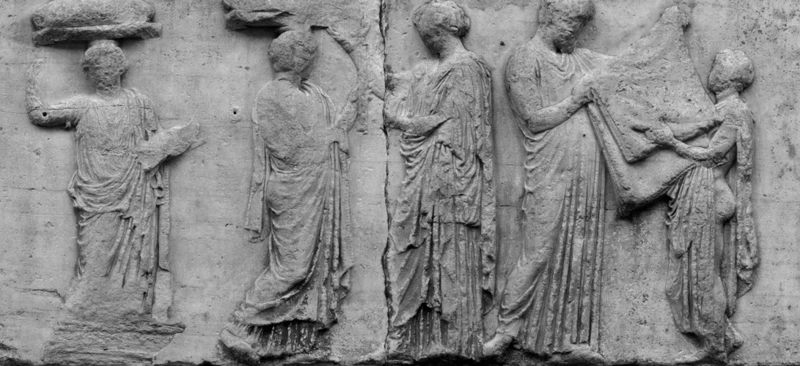
In ancient Greece and Rome, the zodiac held a prominent place in both astrology and mythology. Greek astrology, heavily influenced by Mesopotamian traditions, incorporated the zodiac as a way to understand human characteristics and predict events. Each zodiac sign was associated with different personality traits and qualities, creating a framework for individuals to understand themselves and their place in the world. Additionally, the zodiac played a significant role in Greek mythology, with the twelve constellations representing various gods, goddesses, and mythical creatures. The Romans adopted and adapted the Greek zodiac, incorporating it into their own society and mythology. The influence of the zodiac can be seen in Roman architecture, artwork, and even in the names of some of their months. The connection between the zodiac and Greek and Roman cultures showcases the enduring impact of these ancient civilizations on our understanding of astrology and the celestial world. (Link: /history-influence-zodiac-signs-astrological-practices/)
1. Greek Astrology and the Zodiac
Greek astrology and the zodiac are deeply intertwined, with the ancient Greeks contributing significantly to the development and interpretation of astrological practices. The Greeks believed that celestial bodies, including the planets and constellations, held immense power and influence over human lives. They associated specific personality traits and characteristics with each zodiac sign, believing that an individual’s birth sign determined their destiny and potential. For example, those born under the sign of Aries were considered to be courageous and determined, while those born under Gemini were seen as intellectual and adaptable. Greek astrology also introduced the concept of horoscopes, which are personalized predictions based on an individual’s birth chart, including the positions of the planets and the zodiac signs at the time of their birth. Astrologers would use this information to offer insights into a person’s future, relationships, and overall life path. The Greeks’ fascination with the zodiac extended beyond astrology, influencing their culture, art, and mythology. Many Greek myths feature gods and goddesses associated with different zodiac signs, such as Aphrodite with Taurus and Hermes with Gemini. The Greeks’ contributions to astrology and the zodiac continue to influence our understanding and interpretation of these ancient practices today.
2. Influence on Roman Society and Mythology
The influence of zodiac signs on Roman society and mythology was profound and pervasive. The Romans, like the Greeks, adopted the twelve zodiac signs from the Babylonians, but they added their own interpretations and significance to them. In Roman society, astrology and the zodiac played a significant role in various aspects of life, including politics, daily routines, and religious ceremonies.
One of the key areas where zodiac signs influenced Roman society was in the field of politics. Many Roman emperors and political figures sought guidance from astrology to make important decisions and determine their future course of action. The alignment of the stars and planets was believed to reveal insights and offer predictions about the success or downfall of various endeavors. Rulers would often consult astrologers and consider the zodiac signs before making critical choices, such as declaring war, signing treaties, or scheduling significant events.
The zodiac signs also had a substantial impact on Roman mythology. The constellations associated with each zodiac sign were believed to depict significant mythological figures and stories, intertwining the celestial realm with the realm of gods and heroes. For example, Aries was connected with the ram that carried the Golden Fleece in the myth of Jason and the Argonauts, while Cancer was associated with the giant crab that battled Hercules during his twelve labors.
The zodiac signs found their way into Roman religious rituals and festivals. The Romans believed that each zodiac sign had its own set of deities and divine influences. For example, Taurus, the bull, was associated with agricultural fertility and was often worshipped during harvest festivals. Leo, the lion, symbolized power and courage and was linked to the cult of Hercules. These connections between zodiac signs and religious practices further solidified the significance of the zodiac in Roman culture.
The influence of zodiac signs on Roman society and mythology was multifaceted. They played a critical role in political decision-making, mythology, and religious practices. The Romans integrated the Babylonian zodiac signs into their own culture, infusing them with their unique interpretations and beliefs, making the zodiac an integral part of their society and mythology. (Link: /history-influence-zodiac-signs-astrological-practices/)
Ancient China
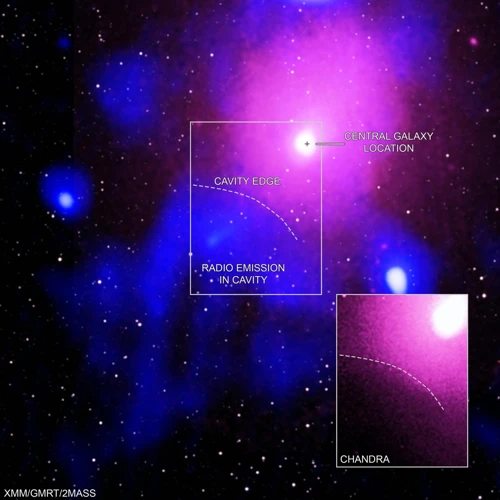
In ancient China, the zodiac held a special place in society and culture. The Chinese Zodiac, known as the Shēngxiào, is based on a twelve-year cycle, with each year associated with a specific animal sign. These animal signs, including the Rat, Ox, Tiger, Rabbit, Dragon, Snake, Horse, Sheep, Monkey, Rooster, Dog, and Pig, hold great cultural significance and are widely celebrated in Chinese tradition. The Chinese Zodiac is believed to have originated from the Han Dynasty and has deep connections to astrology, mythology, and folk beliefs. Each animal sign is believed to possess certain personality traits and characteristics that influence the lives of those born under them. Chinese New Year celebrations, which follow the lunar calendar, mark the transition to a new animal sign, and people often identify strongly with the traits associated with their zodiac animal. The Chinese Zodiac continues to be an integral part of Chinese culture, influencing everything from matchmaking and horoscopes to naming conventions and even financial market predictions. (Link: /the-origin-of-chinese-zodiac/)
1. Chinese Zodiac: The Shēngxiào
The Chinese zodiac, known as the Shēngxiào, is a fascinating system that holds great cultural significance in Chinese society. Unlike the Western zodiac, which is based on constellations, the Chinese zodiac is based on a twelve-year cycle, with each year corresponding to a specific animal sign. These animal signs include the Rat, Ox, Tiger, Rabbit, Dragon, Snake, Horse, Sheep, Monkey, Rooster, Dog, and Pig. Each sign is believed to possess unique characteristics and traits that shape an individual’s personality and destiny. The Chinese zodiac has its roots in ancient folklore and mythology, with countless legends explaining the order of the animal signs. The system is also tied to the lunar calendar, with each year being associated with one of the five elements – Wood, Fire, Earth, Metal, and Water. Understanding one’s Chinese zodiac sign is highly valued in Chinese society as it provides insights into compatibility, career choices, and personal relationships. The Chinese zodiac continues to play a vital role in Chinese culture, with the Year of the Rat, Ox, Tiger, and so on, being widely celebrated.
2. Cultural Significance in Chinese Society
The zodiac holds immense cultural significance in Chinese society. Each of the twelve animal signs in the Chinese zodiac, known as Shēngxiào, carries its own symbolic meaning and is deeply ingrained in Chinese traditions and beliefs. These animal signs are not only used for astrological purposes, but they also play a crucial role in the Chinese calendar and various cultural celebrations. The Chinese zodiac is believed to affect various aspects of life, including compatibility in relationships, personal characteristics, and even predicting one’s fortune. The animal sign associated with a person’s birth year is thought to influence their personality traits and can provide insight into their future prospects. Chinese New Year, the most important festival in Chinese culture, is celebrated with grandeur, and each year is represented by a specific animal sign. The Chinese zodiac is also integrated into Chinese art, literature, and even architecture, emphasizing its pervasive influence on society. Generations have been captivated by the mystique and cultural significance of the Chinese zodiac, further solidifying its place in Chinese tradition and society.
Ancient Mesoamerica
The ancient civilizations of Mesoamerica, particularly the Maya, Aztec, and Inca cultures, held a deep fascination with the zodiac. In Mesoamerican society, the concept of the zodiac was intricately connected to their calendar systems and religious beliefs. The Mayans, in particular, developed a complex zodiac based on their observations of the heavens, and each day in their calendar was associated with a specific zodiac sign. The Mayan zodiac held great importance in divination and astrological predictions. Similarly, the Aztecs and Incas also revered the zodiac and incorporated it into their religious practices and rituals. The mesoamerican zodiac played a significant role in shaping the cultural, religious, and spiritual beliefs of these ancient civilizations, providing insight into their understanding of the cosmos and their place within it. (Link: /mysterious-origins-of-ophiuchus/)
1. Mesoamerican Zodiac and the Maya Civilization
The Mesoamerican Zodiac holds great significance, particularly in the context of the Maya civilization. The Maya had a deep understanding of astronomy and astrology, and they developed their own unique zodiac system. Unlike the twelve-sign zodiacs of other cultures, the Mesoamerican Zodiac consisted of up to 20 symbols, known as the Day Signs. These Day Signs represented different forces and energies that influenced human lives. Each Day Sign had its own characteristics and qualities, and it was believed that the day a person was born under a specific sign would shape their personality and destiny. The Maya priests and astronomers meticulously studied the movements of the celestial bodies, particularly the Sun, Moon, and planets, to determine the auspicious and inauspicious days for various activities. This knowledge was crucial for decision-making, such as determining the best time for planting crops, going into battle, or conducting rituals. The Mesoamerican Zodiac was deeply integrated into all aspects of Maya life, from agriculture to politics to religion. It served as a guide for understanding the cyclical nature of time and the interconnectedness of the cosmos with human existence. The intricate and complex system of the Mesoamerican Zodiac showcases the intellectual prowess and spiritual depth of the Maya civilization.
2. Influence on Aztec and Inca Cultures
The influence of the Mesoamerican zodiac extended beyond the Maya civilization and made its way to the rich and vibrant cultures of the Aztecs and Incas. In Aztec society, the zodiac played a crucial role in various aspects of life, including agriculture, religion, and governance. The Aztecs believed that each day was governed by a specific deity associated with a particular zodiac sign. This belief influenced their agricultural practices, as they relied on the zodiac to determine when to plant and harvest crops, ensuring bountiful harvests and prosperity. The zodiac played a significant role in Aztec religious ceremonies, with each deity tied to a particular constellation or sign. This cosmic connection infused their rituals with spiritual power and meaning. Moving further south, the Inca civilization held a deep reverence for the celestial bodies, and the zodiac was no exception. The Inca used the zodiac as a tool for divination and prophecy. They believed that the movement of the constellations held insights into future events and made important decisions based on their interpretations. The symbolic significance of the zodiac also found expression in Inca art and architecture, with depictions of zodiac signs adorning their temples and sacred sites, emphasizing their connection to the celestial realm. The Mesoamerican zodiac, with its influence on the Aztec and Inca cultures, showcased the profound impact that celestial beliefs had on ancient civilizations, shaping their worldview and profoundly influencing their daily lives.
Conclusion
– The significance of zodiac signs in ancient cultures is a testament to the enduring fascination with the cosmos and its connection to our lives. From Mesopotamia to Egypt, Greece to Rome, China to Mesoamerica, each civilization has incorporated the zodiac into their religious practices, societal structures, and mythologies. The zodiac has served as a tool for self-discovery, guiding individuals to uncover their strengths, weaknesses, and life paths. Its influence has transcended time and borders, shaping the way civilizations interpreted the celestial realm and our place within it.
– In Mesopotamia, the zodiac laid the foundation for astrology, leading to the development of complex celestial charts and predictions based on the positions of celestial bodies. These practices spread to neighboring regions and laid the groundwork for future astrological systems.
– The Egyptian civilization saw a profound connection between the zodiac and their religious beliefs. They associated specific animal symbols with their deities and utilized the zodiac to determine auspicious times for religious ceremonies and agricultural pursuits.
– Ancient Greece and Rome incorporated the zodiac into their mythologies, attributing divine qualities to the constellations and drawing parallels between celestial events and human experiences. Greek astrology further refined the interpretation of zodiac signs, assigning unique personality traits to each.
– In China, the zodiac took the form of the Shēngxiào or Chinese zodiac. It played a prominent role in Chinese society, with each animal sign representing a year in a twelve-year cycle. The zodiac signs were used to determine compatibility in relationships, predict fortunes, and guide major life decisions.
– The zodiac in Mesoamerica, particularly among the Mayans, Aztecs, and Incas, held deep cultural significance. Often tied to their agricultural practices, the mesoamerican zodiac guided planting and harvesting rituals. The Mesoamerican civilizations also incorporated the zodiac into their intricate calendars, reflecting the importance of celestial movements in their daily lives.
In conclusion, the zodiac signs have played a profound role in ancient cultures, shaping their beliefs, practices, and understanding of the cosmos. These ancient civilizations recognized the connection between the celestial and human realms, harnessing the power of the zodiac for guidance, prediction, and self-reflection. Today, centuries later, the influence of these cultures can still be felt as we continue to explore the profound significance of zodiac signs in our own lives.
Frequently Asked Questions
1. How did astrology develop in Mesopotamia?
Astrology in Mesopotamia developed as early as the 2nd millennium BCE. The ancient Mesopotamians believed in the influence of celestial bodies on human affairs and observed the movements of the stars and planets to make predictions and interpretations.
2. What is the significance of the zodiac in Mesopotamian civilization?
The zodiac held great significance in Mesopotamian civilization as it provided a framework for understanding and predicting events. The division of the sky into twelve equal sections, each representing a constellation, allowed astrologers to interpret the positions of these constellations at the time of a person’s birth to reveal character traits and potential future.
3. How are zodiac signs connected to Egyptian religion?
In ancient Egypt, zodiac signs were connected to the religion and belief in the afterlife. The different constellations were associated with specific gods and goddesses, and individuals believed they could align themselves with these deities based on their zodiac sign.
4. How did ancient Egyptians use the zodiac in their calendar?
Ancient Egyptians incorporated the zodiac into their calendar to mark significant dates and events. They believed that the positions of the stars and planets influenced the timing of agricultural activities and religious ceremonies.
5. What was the influence of Greek astrology on the zodiac?
Greek astrology played a significant role in the development of the zodiac. Greek philosophers expanded on the concept of astrology and introduced the division of the zodiac into twelve signs, each associated with specific personality traits and characteristics.
6. How did the zodiac influence Roman society and mythology?
The Romans adopted and adapted the Greek zodiac, incorporating it into their society and mythology. They associated the zodiac signs with their gods and goddesses, intertwining astrological beliefs with their religious practices and cultural traditions.
7. What is the Chinese zodiac, and how is it significant in Chinese society?
The Chinese zodiac, known as Shēngxiào, is a twelve-year cycle represented by animal signs. Each year is associated with a specific animal, and individuals are believed to possess the characteristics and traits of that animal. The Chinese zodiac is significant in Chinese society as it is used for personality analysis, matchmaking, and fortune-telling.
8. What is the cultural significance of the Chinese zodiac in Chinese society?
The Chinese zodiac holds immense cultural significance in Chinese society. It is deeply ingrained in traditions, festivals, and celebrations. The zodiac animals are believed to symbolize luck, prosperity, and fortune, influencing decisions about marriage, career, and even naming newborns.
9. How did the Mesoamerican civilization interpret the zodiac?
The Mesoamerican civilization, particularly the Maya, had their own interpretation of the zodiac. They developed an intricate system of astrological calculations and believed that the movements of celestial bodies influenced the destiny of individuals and the outcomes of events.
10. How did the Mesoamerican zodiac influence Aztec and Inca cultures?
The Mesoamerican zodiac, with its association with the Maya civilization, influenced the Aztec and Inca cultures. The Aztecs and Incas adopted certain aspects of the Maya zodiac, incorporating them into their own religious practices, agriculture, and societal structure.

